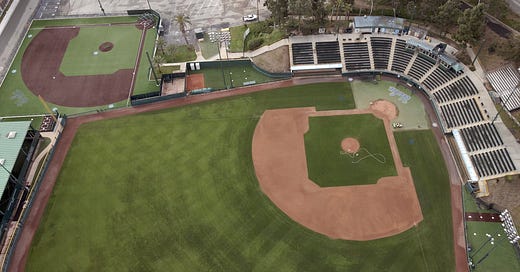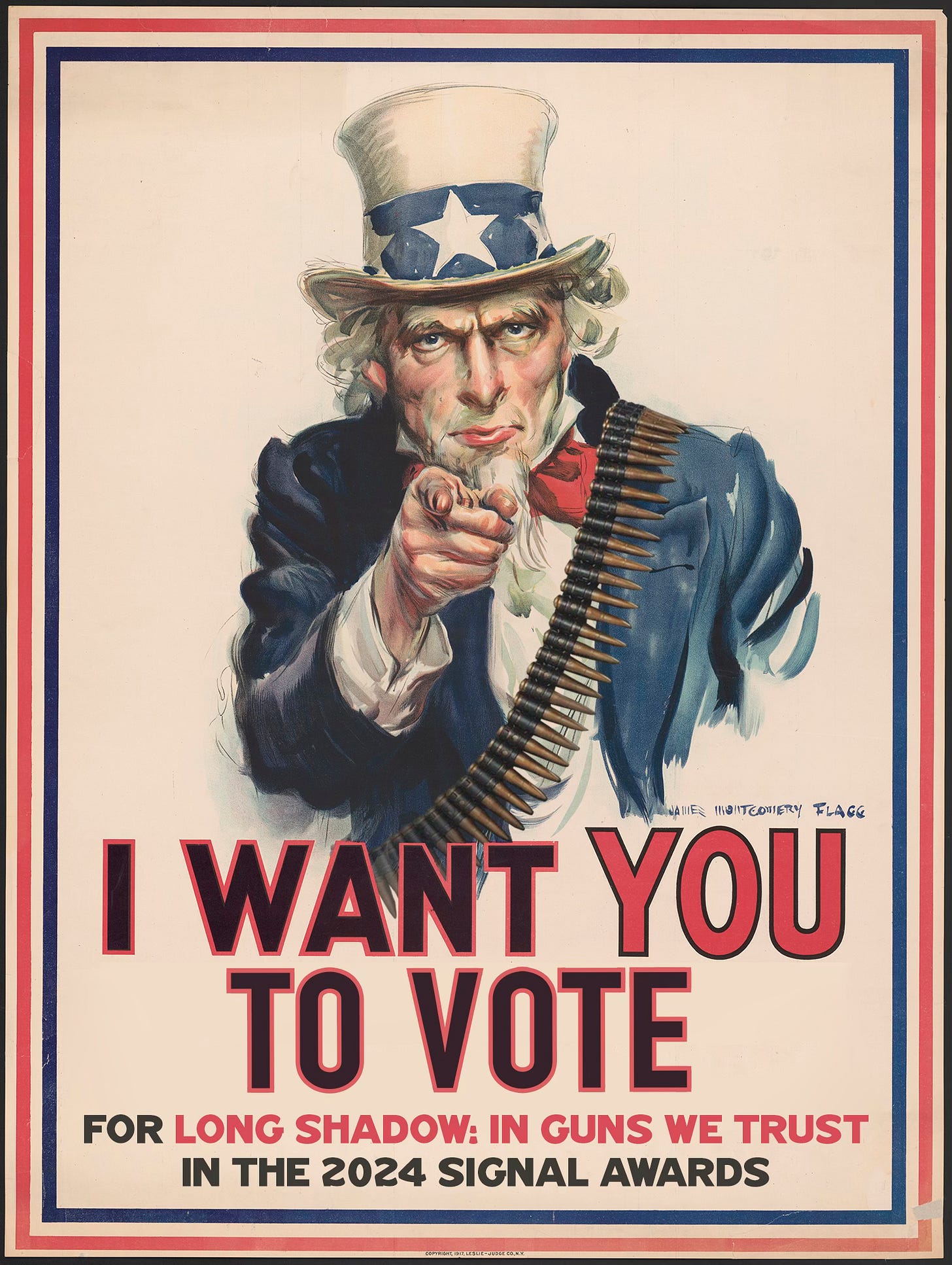Judge mulls emergency order to build veteran housing in former ballpark parking lot: “You can’t tell me our country can’t do this.”
“If we can do it in some foreign country, I’m telling you we do it," Judge Carter said, pointing to a photo of housing built by the U.S. government in a former Soviet country.

On Friday, Judge David Carter rejected UCLA’s plea to end a lockout at its baseball stadium and indicated he would approve emergency orders placing temporary housing for homeless veterans in several parking areas on the West Los Angeles VA campus, including two lots surrounding the university’s ballpark.
Carter’s discussion of the orders followed days of often tense court hearings on an injunction implementing the judge’s scathing September 6 ruling that struck down land leases held by UCLA, the Brentwood School, and other interests on the 388-acre property and ordered the building of thousands of new housing units for veterans. Their class-action lawsuit was filed over the VA’s decades-old failure to provide homes for former service members living in the streets of L.A.
Long Lead has been reporting from Powers v. McDonough every day court has been in session, and we will continue to follow this issue in this newsletter. Subscribe here to get updates sent direct to your inbox as soon as they publish:
Brad Rosenberg, a lawyer for Veterans Affairs, objected to the potential housing orders, citing agency rules and regulations, and pleading agency poverty. To fully comply with Carter’s ruling, the VA would have to procure and install up to 750 units of modular housing on campus land and finance and build 1,800 permanent supportive homes.
“You can’t tell me our country can’t do this,” Carter shot back. The judge said he is pushing the emergency housing now to get veterans off the streets before the rainy season starts. He had an aide display photographs he has shown the court several times of housing that US AID put up in the republic of Georgia. “If we can do it in some foreign country, I’m telling you we do it. My country can do it, period.”
Ray Cardozo, a lawyer for UCLA, offered a payment of $280,000 to veterans and asked Carter to reverse or at least delay the stadium shutdown. Cardoza said the closure offered veterans no benefit, and cited “the trauma these kids have experienced the last nine days,” drawing derisive laughter from several veterans attending the court hearing.
The judge said the VA, in insisting the campus had no room for more housing beyond the 1,200 units it promised under previous litigation settled in 2015, had forced him to order temporary housing be built on the land formerly leased by UCLA.
Playing the field
Of all the private interests operating on the West LA VA campus, UCLA is arguably the most powerful. The school has close ties with city, state, and federal officials caught up in the VA grounds’ war and wields special leverage with the department through an academic affiliation dating back to the 1940s that provides the West LA hospital with clinical staff and research resources crucial to its ability to provide care for veterans. All of this has allowed the university to operate with unprecedented impunity.
The university has leased more than 10 acres on the VA campus dating back to 1981. That February, UCLA held its first game at a massive new baseball facility that the VA allowed to be built on campus grounds. “Located on the site of old Sawtelle Field, Jackie Robinson Stadium provides the Bruins with one of the top college baseball fields in the nation,” reads a 2013 description of the facility that notes its verdant setting “along trees in a natural environment.”
In August 2013, a federal judge deemed the arrangement, and eight others, illegal. In response, the university secured what someone involved in the execution of the VA’s leasing agreements described as a “special relationship” in the form of a lease for the stadium involving a 10-year commitment to pay rent and provide at least $13.5 million in in-kind support to the veterans. It was tucked into the West LA Leasing Act, a 2016 law co-authored by U.S. Sen. Dianne Feinstein and U.S. Rep. Ted Lieu, two California lawmakers with close ties to the school. “They did that because the regents are the most juiced-up players in California life,” explains a source involved in the leasing efforts, “and because VA needs a huge number of UCLA medical residents.”
Learn more by reading “Carving up the Map,” Part Four of Home of the Brave.
Mark Rosenbaum, attorney for the veterans, excoriated UCLA for blindsiding lawyers with a late-night filing to intervene Thursday and for belatedly offering veterans compensation after sitting out negotiations. “With respect to that very valuable land, UCLA historically has paid nothing close to what it’s worth,” Rosenbaum said.
Cardozo seemingly illustrated the plaintiff’s counsel's point by walking out of the courtroom after his initial arguments, and Carter sent another lawyer to fetch him. Cardozo later returned, and renewed his appeal to lift the lockdown, to no avail.
Rosenberg also said the VA may oppose parts of a $5 million settlement plaintiffs have reached in principle with the Brentwood School, which has agreed to turn its multi-million-dollar sports complex — which includes a pool, weight room, and track — over to veterans more than half the time. Carter noted he also sensed the VA didn’t like that the $5 million would be largely retained in Los Angeles and not go to the government treasury.
The VA can’t block Carter’s orders, Rosenberg conceded, but he warned the Solicitor General could appeal the overall judgment.
The next hearing is scheduled for Oct. 7 at 1:30 p.m.
Oct. 5: This story has been edited to attribute the following quote to Mark Rosenbaum, which was previously and inadvertently attributed to Brad Rosenberg:
“With respect to that very valuable land, UCLA historically has paid nothing close to what it’s worth.”
We apologize for the error.
Help “Long Shadow” win a Signal Award — or three!
“Long Shadow: In Guns We Trust” is a finalist for an astounding three Signal Awards. Hosted by Garrett Graff and produced in collaboration with The Trace and Campside Media, this PRX-distributed podcast chronicles America’s decades-long gun violence epidemic and asks “How can we fix it?”
Vote for “Long Shadow” here:
Best Activism / Social Impact Podcast: https://bit.ly/3Bsg897
Best History Podcast: https://bit.ly/3TUoXPj
Best Documentary Podcast: https://bit.ly/3TS9Plq








